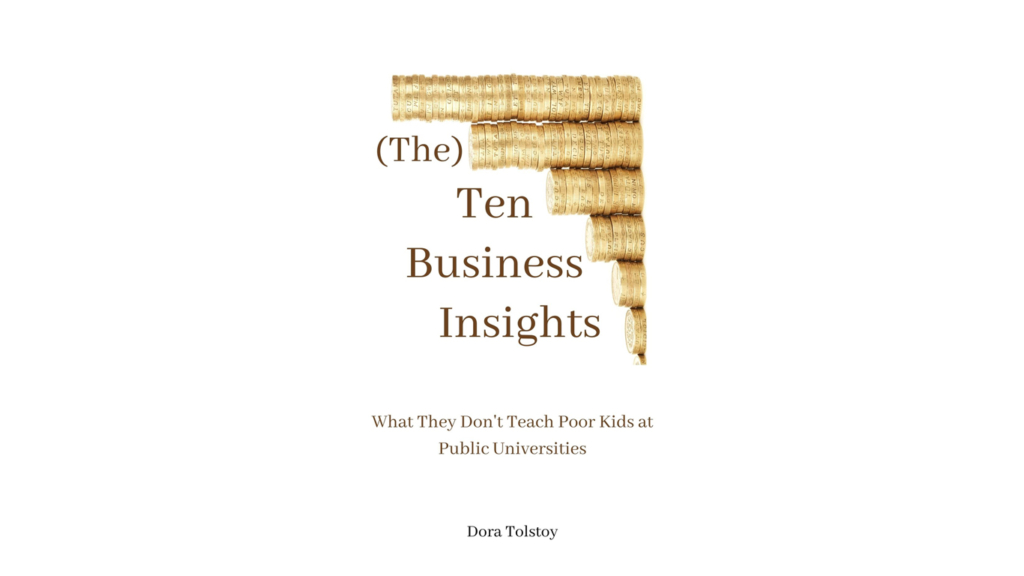Lundagård reviews economics student Dora Tolstoy’s satirical business self-help book (The) Ten Business Insights (2021). ”The book may help you to spot the rotten apples of the corporate world.”
Swedish economics student Dora Tolstoy’s premier novel (The) Ten Business Insights (2021) tells the story of a young entrepreneur who gives aways his best business tips after a successful career. She writes under a pseudonym and the book is formatted similarly to a regular business self help book but it takes a satirical approach to the motivational business and self-improvement branch of literature. The protagonist that works as the first-person narrator is entitled, bratty and a classic combination of all the worst Wall Street cliches.
The novel pokes fun at the booming self-help / entrepreneurship / business scene that is alive and well in the entrepreneur societies of business schools. It is filled with witty remarks from Linkedin profiles to corporate culture quirks that are sometimes painfully accurate. The tips range from spending as little time with your children as possible to never hiring beautiful women to work in your company. Occasionally, the generalisations become a bit too corny and the main character lacks a certain kind of realistic edge but Tolstoy’s use of exaggeration as a tool to make the protagonist appear as unlikeable as possible does work its wonders.
The tone is sarcastic from the beginning to the end, making the text flow well. Tolstoy uses partly colloquial language that makes the text simple and fun to read. The book is also only around 50 pages which makes it easy to read in one sitting. However, the shortness comes at a cost as the sudden change in tone in the last chapter arrives quite abruptly and thus the ending feels a bit manufactured. There is not really a motivation given to the protagonist train of thought and thus the ending leaves the reader slightly confused.
For a Lundastudent knowing that Tolstoy herself has spent three years at the economics faculty mirroring brings an interesting layer as one can find themselves connecting the dots to some of the worst Lund School of Economics and Management stereotypes. The most enjoyable parts of the books are the ones that resemble real-life situations in a business environment and Linkedin bios that in their ridiculousness are scarily accurate: “I am an ambitious, curious, and hardworking team player with a passion for multilayered quantum analysis and metric AI systems, but my friends call me Brad 😉 I have a track record of sending two emails per millisecond, a stark contrast with my performance in bed where I am like a good boeuf bourguignon- turned on for four hours on low heat. I strive in distracting open space environments and measure my self-worth with how pleased my boss is with me. Let’s connect!”
Sadly, at times there is a ring of truth to what Tolstoy writes so in addition to a light-hearted reading experience, the book may help you to spot the rotten apples of the corporate world.












